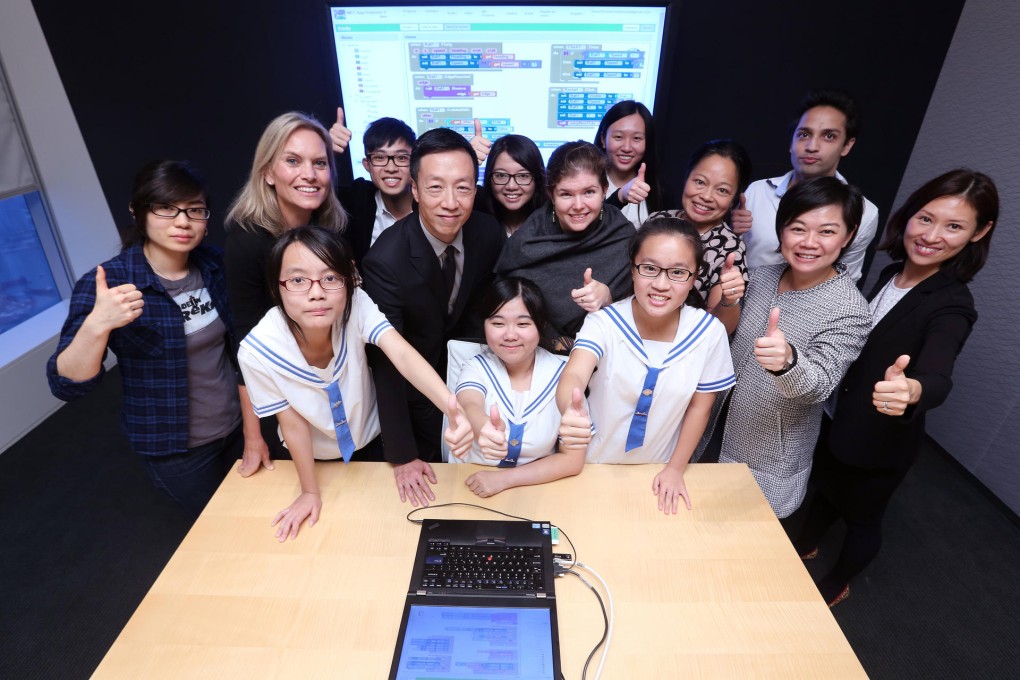Operation Santa Claus: Credit Suisse and Women's Foundation help to break down IT barriers
Credit Suisse has teamed up with the Women's Foundation to challenge a misconception and prove that science subjects are not just for boys

For the students at Vicky Cheung's girls' school, developing skills in science and technology subjects was considered far less worthwhile than learning about literature and language.
"They told us they wanted us to be well-educated young women, so we learnt about Shakespeare," says the young Credit Suisse employee who works as a software developer and gives classes to fledging coders.
"No one said we could be good developers … they didn't even promote science."

"We want to help provide an ecosystem of support [for aspiring female developers] while providing more opportunities," says Peter Mo, who heads the China branch of Credit Suisse's IT department. He adds that the false conception of IT jobs being "just about fixing computers" also acts as an unhelpful deterrent to bright young women developing digital skills.
Cheung laments the archaic attitudes in Hong Kong that serve as barriers for young women acquiring the skills that could take them far in a society that is becoming increasingly enmeshed in technology.